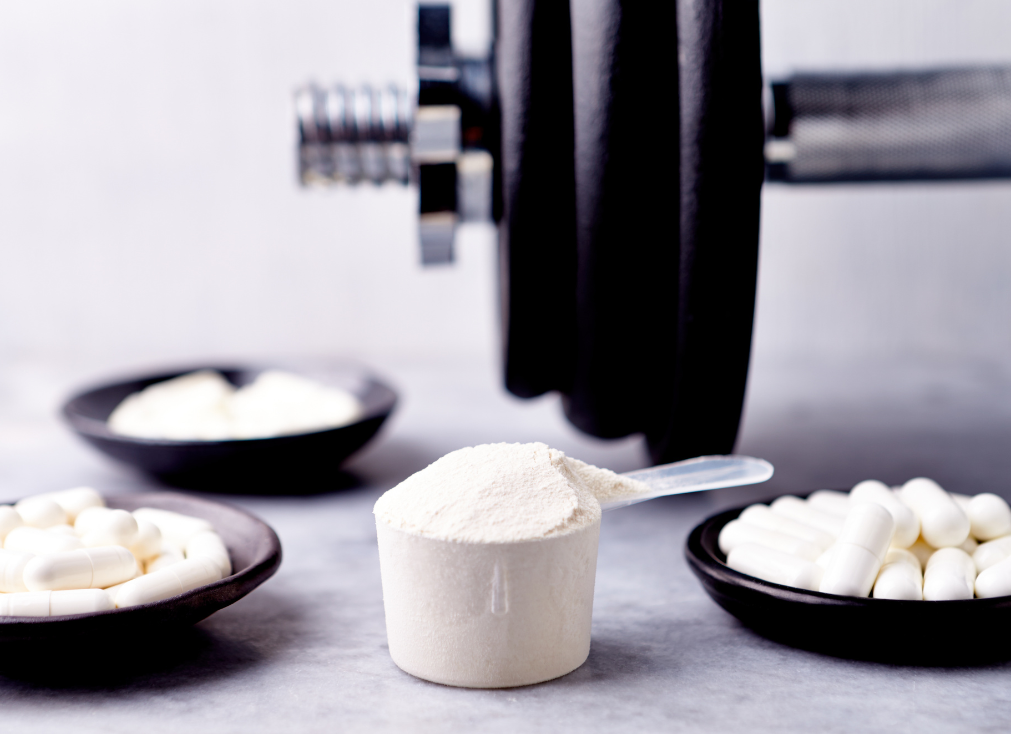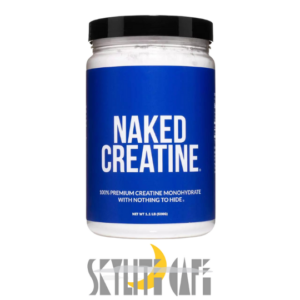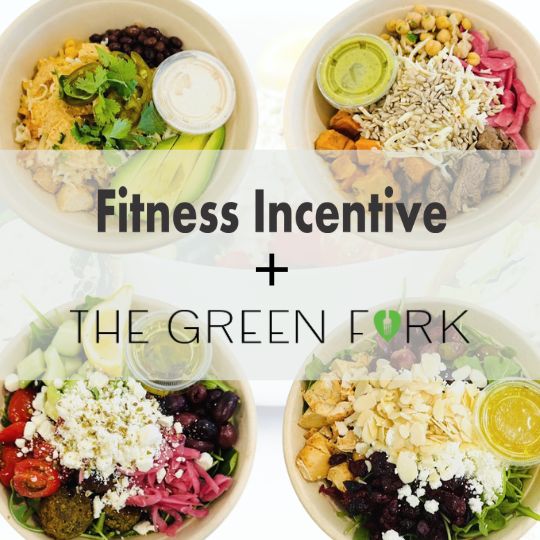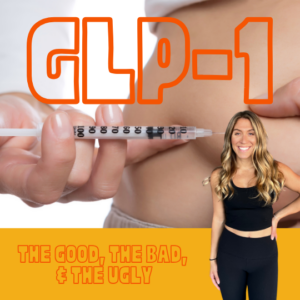
“…research shows that creatine is one of the safest and most effective supplements for both men and women.”
- Liz Keller, MS, CNS, ASCM-PT

The Truth About Creatine and Other Supplements:
A Science-Backed Guide
When it comes to supplements, there’s a lot of confusion and misinformation, especially around creatine. In March, I decided to give a free seminar to discuss some of the myths about using creatine and discuss other supplements that participants would find beneficial. I went over many different myths, but I want to highlight some major ones to clear up any lingering misconceptions!
Some believe creatine causes bloating, weight gain, or even kidney damage. Others think it’s only beneficial for bodybuilders and men. However, research shows that creatine is one of the safest and most effective supplements for both men and women. It is the most researched sports supplement and new studies come out every year. Recently, more studies using women specifically have been published, focusing on how hormonal fluctuations can influence the production of creatine within the body.
Key Benefits of Creatine Supplementation
Improves Strength & Muscle Growth – Creatine has been shown to enhance high-intensity exercise performance, promote muscle growth, and aid recovery.
Boosts Brain Function – Research suggests creatine supports cognitive function, particularly under mental stress, sleep deprivation, or aging.
Supports Women’s Health – Women have naturally lower creatine stores than men. Supplementation may help with muscle retention, hormonal balance, and bone density, particularly during menopause.
Debunking Common Myths About Creatine
Myth: Creatine causes bloating or weight gain → Truth: Creatine increases intracellular water retention, making muscles look fuller, not bloated.
Myth: Creatine damages kidneys → Truth: No studies show kidney damage in healthy individuals taking the recommended 3-5g per day.
Myth: Only men benefit from creatine → Truth: Women experience the same muscle, energy, and cognitive benefits from supplementation.
How Much Creatine Should You Take?
A daily dose of 3-5 grams is sufficient for most people. A loading phase (20g per day for a week) is optional but not necessary.
Other Science-Backed Supplements
During my seminar, I discussed other key supplements, like fish oil, probiotics, Rhodiola, and Maca, which offer various health benefits. Here’s a quick summary:
1. Fish Oil (Omega-3s)
Fish oil is rich in omega-3 fatty acids (EPA and DHA), which play a crucial role in heart health, inflammation reduction, brain function, and athletic performance. Here are some of its key benefits:
•Supports heart health, brain function, and joint health
•Reduces inflammation and muscle soreness after workouts
•May help with fat metabolism and weight management
2. Probiotics
•Improve digestion, immune function, and gut health
•May support metabolism and weight regulation
•Help reduce inflammation and improve recovery
3. Rhodiola Rosea
Rhodiola is an adaptogenic herb that helps the body resist stress and improve overall physical performance. Here are some of its key benefits
•Boosts energy, endurance, and athletic performance
•Helps reduce fatigue and stress-related burnout
•Supports cortisol balance, aiding recovery and mood
4. Maca RootMaca (Lepidium meyenii)
Maca Root is a nutrient-dense root vegetable known for its adaptogenic properties, helping improve energy, endurance, hormone balance, and recovery. Here are some key physical health benefits:
•Increases stamina and athletic performance
•Supports hormonal balance, particularly for women
•Helps with mood, recovery, and bone health
How to Use Supplements Wisely
- Creatine: 3-5g/day, taken anytime (pre/post-workout or anytime during the day that you will be consistent with. Consistency is key with this supplement)
- Fish Oil: 1000-2000 mg/day of EPA & DHA combined
- Probiotics: 10+ billion CFU/day, look for multi-strain blends
- Rhodiola & Maca: Take in the morning to support energy levels
As someone with a master’s in Human Nutrition, I’m passionate about helping people navigate the overwhelming world of supplements with science-backed, individualized guidance. While supplements like creatine, fish oil, probiotics, Rhodiola, and Maca can offer incredible benefits, they aren’t magic pills—they work best when combined with a solid foundation of proper nutrition and exercise.
It Starts with Your Diet
Think of it this way: Relying on supplements without a good diet is like trying to build a house with expensive furniture but no solid foundation—what good is expensive furniture if everything around it collapses? No amount of creatine can make up for a lack of protein, and no supplement can undo a poor diet.
If you’re interested in optimizing your supplement routine and making sure your diet aligns with your fitness and health goals, I’d love to help! Book an appointment with me, and we’ll create a personalized plan that’s tailored to your unique needs—one that’s scientifically sound and actually works for you.
Want to learn more? Check out these science-backed studies:
Creatine Myths Debunked: Read More
Brain Health & Creatine: Read More
Women’s Health & Creatine: Read More
Looking for a great Creatine? Look no further than the Skylite Cafe right here at Fitness Incentive. We stock and sell Naked Creatine. You can add creatine to your shake or buy it to take home. Or both!

Sponsored Links
About the Author

Liz Keller
Liz Keller, MS, CNS, ACSM-PT is a nutritionist, personal trainer, group fitness instructor, and health coach. She runs the Well Choices program at Fitness Incentive.
More From Fit to Print Spring 2025
What’s Happening at FI Spring 2025
Spring. As in "Spring Forward!"
Re-Introducing Incentives Organic Spa & Salon
Incentives is a truly curated spa experience and a perfect yin to your gym membership's yang.
GLP-1: The Good, The Bad & The Ugly
Up to 40% of the weight lost on GLP-1 drugs can come from lean mass, aka your muscles. That's a big deal!









